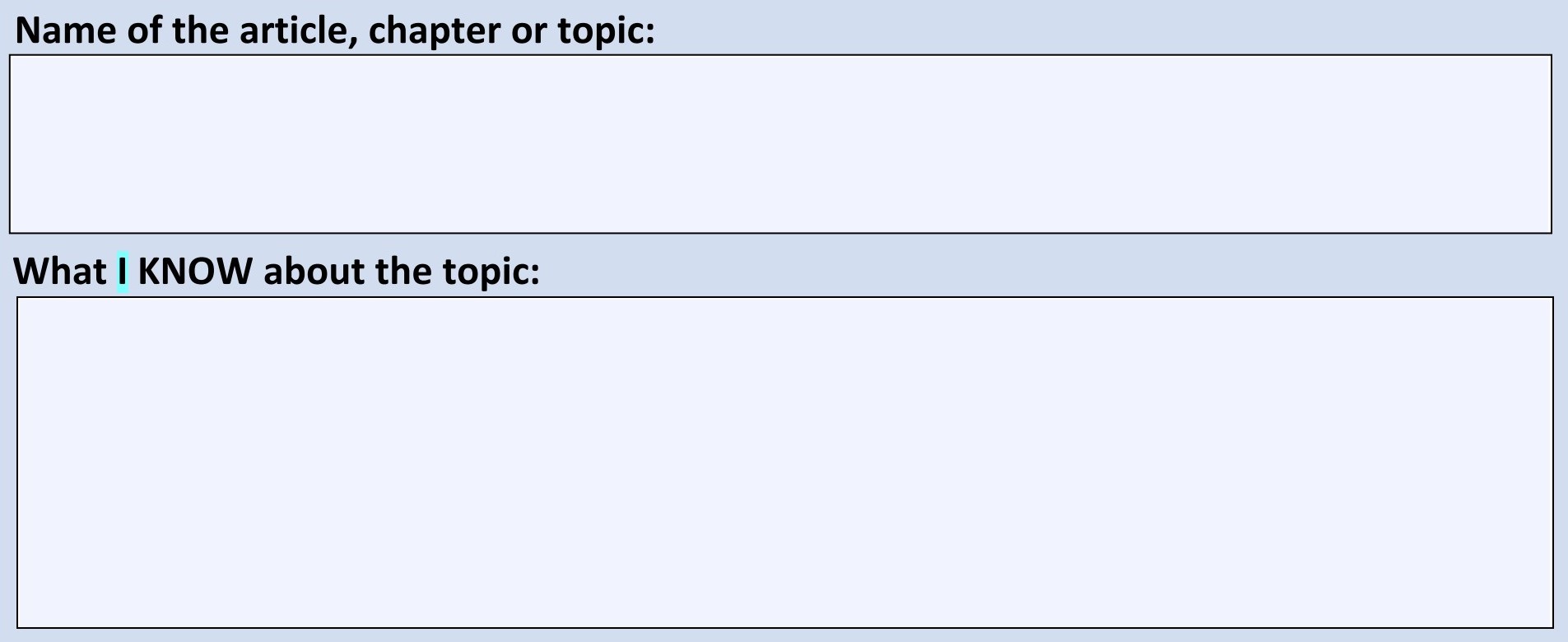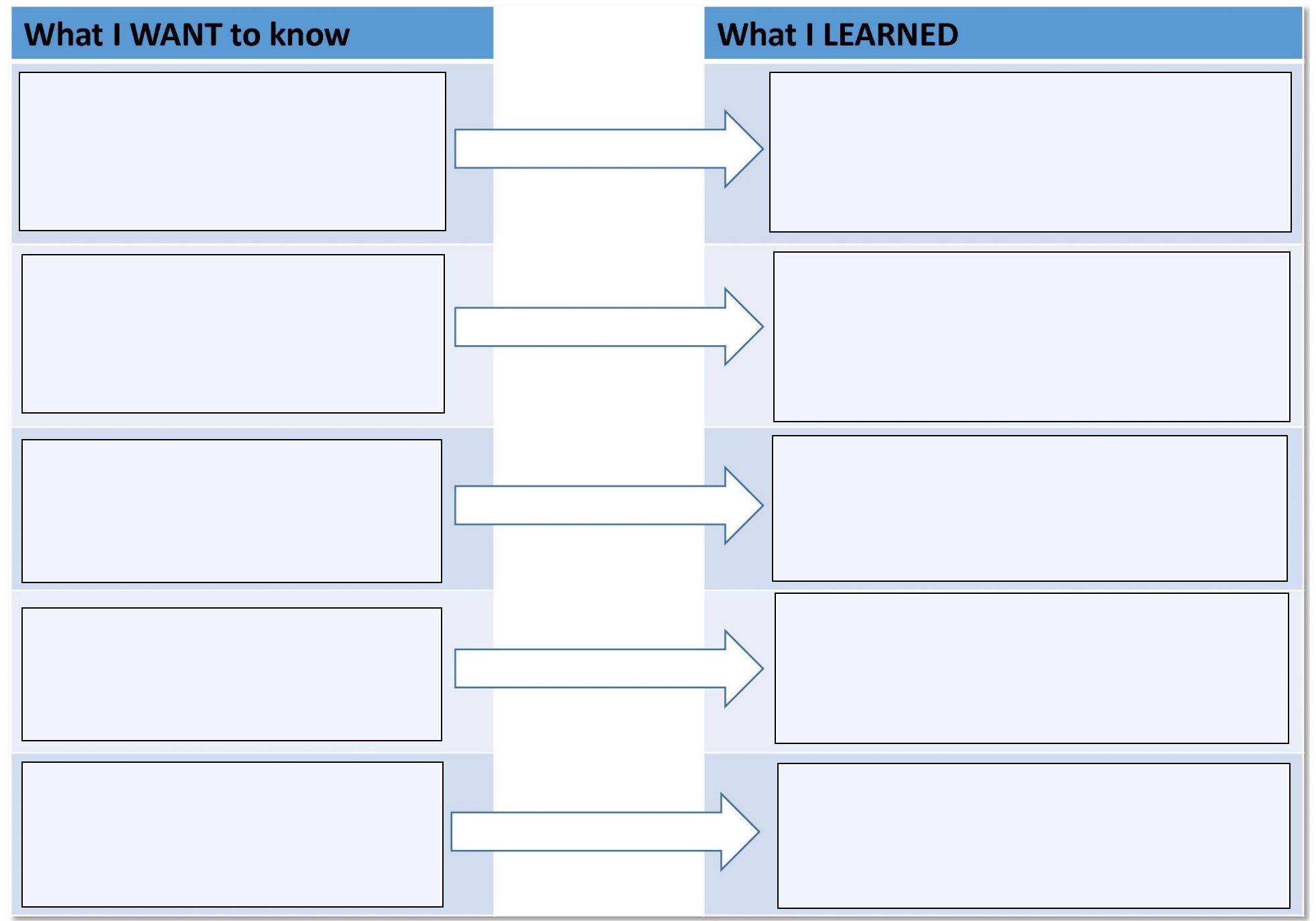Below is a list of strategies to make the most of out of your reading time. You are encouraged to adapt the strategies to your preferences. See what works best for you!
Book an appointment with an academic skills advisor at the Academic Skills Centre.
Questions to ask yourself before reading
- What do I need to know?
- How will I use this information?
- Why is this information important to my course or research?
- What does my professor or instructor want me to learn?
Points to consider
Once you decide which question you want answered or have found the topic of information you are seeking, use this template (also available for downloading as a fillable template) as you read to help you answer these questions and help you understand the text.
-
- Main argument: The author’s main argument.
- Methods: How is the point being proven by the author(s)? How was the research done?
- Context: What has been said about this topic by other scholars? Do they agree or disagree the author of your text?
- Source(s) / Evidence / Examples: to prove the argument.
- Strengths: What is effective in this reading? What works?
- Weaknesses: What is not effective in this reading? Where does it fall short? How?
- Gaps and lingering questions: Things I don’t understand or have more questions about.
Read with Purpose - the KWL Strategy
Great for setting goals before you read and tracking what you learn
- Identify what you already know about a topic
- Decide what you want to learn as you read. Course learning outcomes and chapter headings can be helpful resources for that second step: deciding what you need to learn.
- Track what you learned as a result
We’ve presented the strategy in the format of a graphic organizer, available as a fillable template for downloading, but you could also try it out as a brainstorming web or concept map.


To learn more about this topic and to get help
Book a free in-person or online appointment with an academic skills advisor at the Academic Skills Centre!
